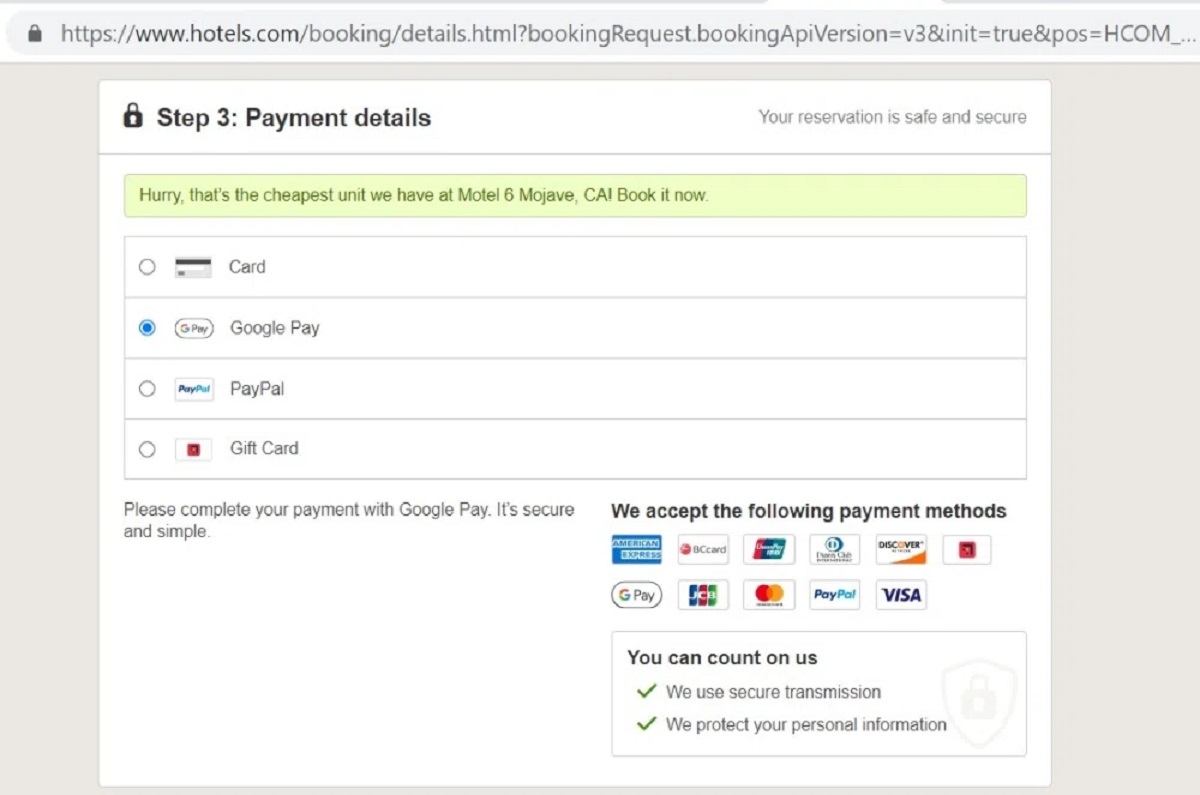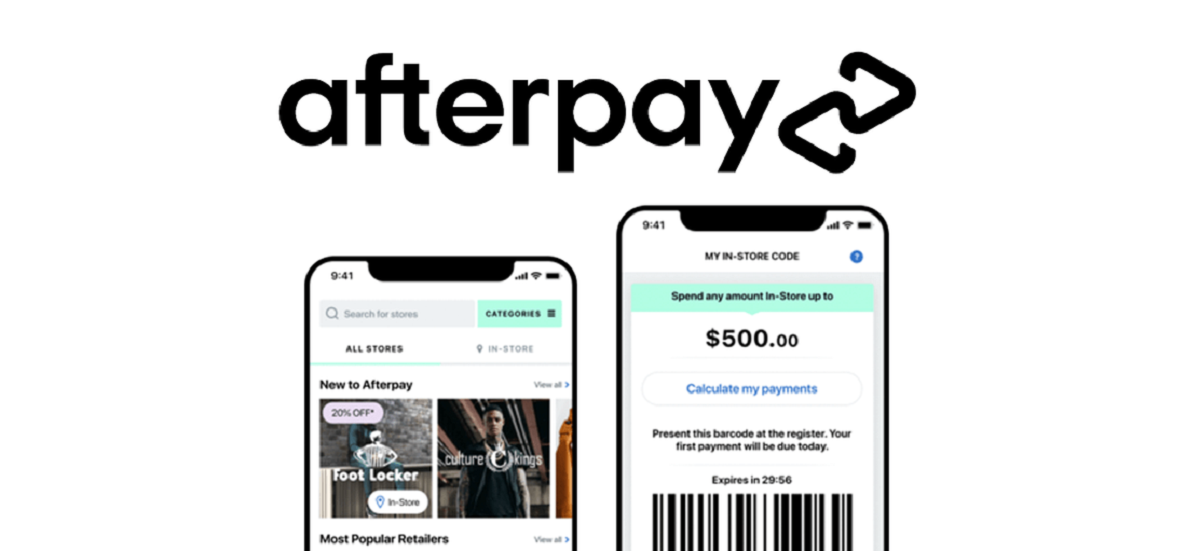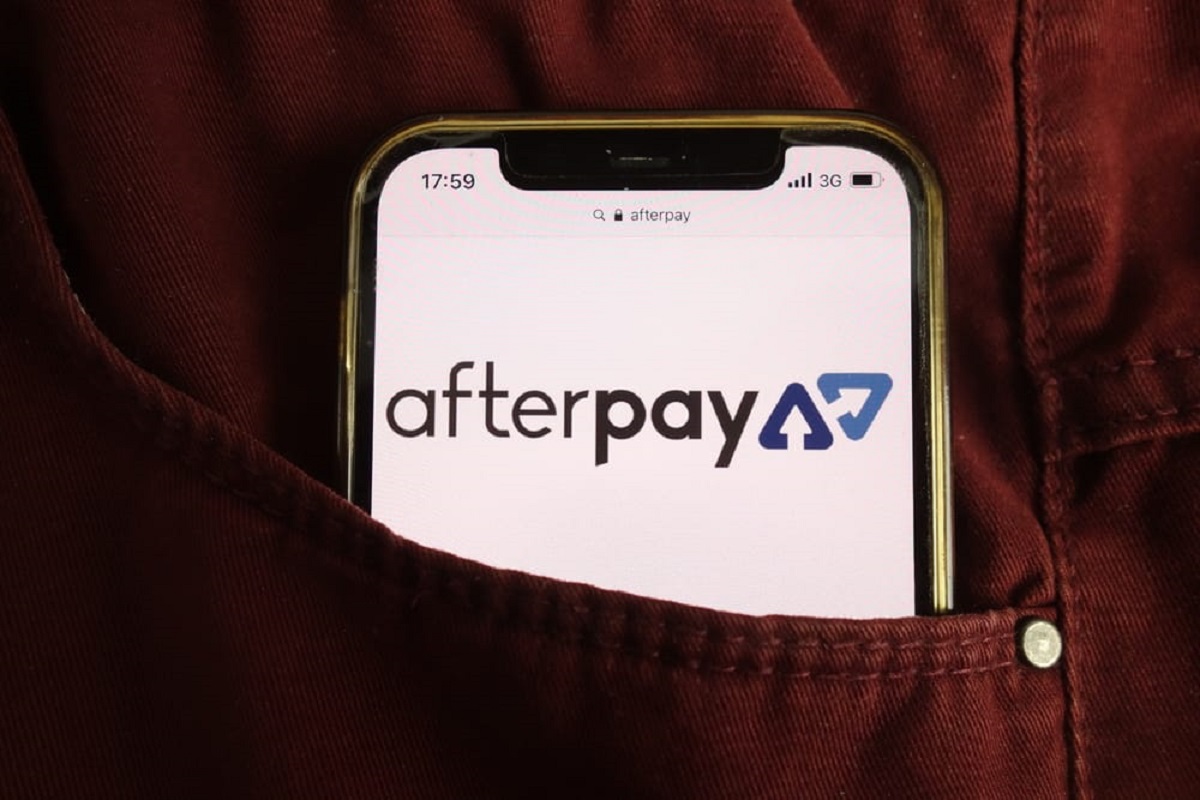Introduction
Welcome to the world of online shopping, where convenience meets affordability. In recent years, new payment methods have emerged to make shopping even easier. One such method is Afterpay, which allows customers to pay for their purchases in installments, rather than upfront. It’s a popular choice among shoppers who want to spread out their payments and avoid the burden of a large sum all at once.
However, if you’re a potential Afterpay user, you may be wondering about the age restrictions that come with this payment option. After all, financial matters often come with age requirements, and it’s important to know if you meet them. In this article, we will delve into the age requirement for using Afterpay and discuss the legalities surrounding this payment option.
Whether you’re a curious teenager or a concerned parent, understanding the rules and regulations around Afterpay will ensure a smooth and hassle-free experience. So, let’s dive in and find out how old you have to be to have Afterpay!
What is Afterpay?
Before we jump into the age requirement for Afterpay, let’s first understand what this payment method entails. Afterpay is a “buy now, pay later” service that allows shoppers to make purchases and pay for them in four installments. It eliminates the need to pay the full amount upfront, making it a convenient option for those on a budget or looking to spread out their expenses.
With Afterpay, customers can shop at participating online retailers or even in-store, depending on the availability of this payment option. The process is simple: upon checkout, customers select “Afterpay” as their payment method and provide their payment details. The total amount is then divided into four equal payments, with the first installment paid at the time of purchase.
Afterpay is not only convenient but also interest-free. That’s right – as long as you make your payments on time, you won’t incur any additional charges. This makes it an appealing option for shoppers looking for flexibility and affordability.
It’s worth noting that Afterpay operates as a third-party service, connecting customers with retailers, and facilitating the payment process. It acts as a financial intermediary, allowing users to make purchases without needing a credit card or worrying about hefty interest rates.
Now that we have a better understanding of Afterpay, let’s explore the age requirement for this service and the legalities surrounding it.
The Age Requirement for Afterpay
When it comes to using Afterpay, there is a specific age requirement that individuals must meet in order to be eligible for this payment option. The minimum age to have Afterpay varies depending on your country of residence. In most countries, including the United States, United Kingdom, Australia, and Canada, the minimum age requirement is 18 years old.
The reason behind this age restriction is that Afterpay operates as a financial service, and there are legal considerations and responsibilities associated with providing credit. Being at least 18 years old signifies that an individual is legally considered an adult and is capable of entering into financial agreements.
It’s important to note that age requirements can vary depending on the local laws and regulations of a specific jurisdiction. Therefore, it’s always a good idea to check the specific terms and conditions of Afterpay in your country to ensure that you meet the minimum age requirement.
While Afterpay sets a minimum age, it’s also important to remember that individual retailers may have their own age restrictions for using Afterpay. Some retailers may choose to set a higher age requirement for the purchases made with Afterpay, especially for certain products or services. Therefore, even if you meet the minimum age requirement set by Afterpay, there might still be age restrictions imposed by specific merchants.
By abiding by the age requirements set by Afterpay and individual retailers, you ensure that you are using the service responsibly and in compliance with the terms and conditions. This not only protects you as a consumer but also helps maintain the integrity and trustworthiness of the Afterpay platform.
Now that we understand the age requirement for Afterpay, let’s delve into the legal age to use Afterpay and the implications for online shopping.
Legal Age to Use Afterpay
While the minimum age requirement for Afterpay is generally 18 years old, it’s important to understand the legal implications and responsibilities that come with using this payment method. When you use Afterpay, you are essentially entering into a financial agreement, and this agreement carries legal obligations.
By being of legal age, which is typically 18 years old in many countries, you are considered an adult in the eyes of the law. This means that you have the legal capacity to enter into contracts and assume financial responsibilities. It’s important to note that minors, those under the legal age, are generally not able to enter into legally binding agreements without the involvement of a parent or guardian.
Using Afterpay as a minor may result in a breach of the terms and conditions, as well as potential legal consequences. Therefore, it’s crucial to understand and respect the legal age requirement for using Afterpay to ensure that you are acting within the boundaries of the law.
Moreover, legal age restrictions also serve to protect minors from financial risks and promote responsible financial behavior. Financial decisions can have long-term consequences, and it’s important for individuals to have the necessary maturity and understanding to make informed choices.
It’s worth mentioning that Afterpay takes these legal age restrictions seriously. They have implemented various measures to verify the age and identity of their users, such as requesting identification documents and conducting age verification checks. This ensures compliance with the legal requirements and helps prevent unauthorized use of the service.
Now that we have explored the legal age to use Afterpay and the associated responsibilities, let’s move on to the age restrictions for online shopping and how they relate to Afterpay.
Age Restrictions for Online Shopping
When it comes to online shopping, age restrictions can vary depending on the country, local laws, and the type of products or services being purchased. Online retailers often have their own policies regarding age restrictions, especially for certain items that have specific legal guidelines, such as tobacco products, alcohol, and adult content.
In many countries, individuals under a certain age, usually 18 or 21 years old, are legally prohibited from purchasing age-restricted products. This is to protect minors from accessing or engaging in activities that may be harmful or inappropriate for their age group.
When using Afterpay for online shopping, it’s important to note that the age restrictions set by the individual retailers also apply. If a retailer has an age restriction for a particular product or service, it will still be applicable even if you are using Afterpay as your payment method.
Afterpay itself does not have specific age restrictions beyond the minimum age requirement of 18 years old. However, they work closely with retailers to ensure compliance with age restrictions for purchases made with Afterpay. This cooperation aims to prevent minors from obtaining age-restricted items or engaging in activities that are not suitable for their age group.
Therefore, as an Afterpay user, it’s essential to familiarize yourself with the age restrictions set by the retailers from which you are making purchases. This will help you avoid any violations or legal issues, and ensure that you are using Afterpay responsibly.
Now that we have discussed the age restrictions for online shopping, let’s move on to the use of Afterpay for minors and how it can be set up by parents or guardians.
Afterpay for Minors
While Afterpay is primarily intended for adult use, there may be situations where minors wish to make purchases using this payment method. However, it’s important to note that Afterpay’s terms and conditions require users to be at least 18 years old. This means that minors would technically not be able to create their own Afterpay account or use the service independently.
However, Afterpay has recognized the need for parental or guardian involvement in certain cases. They provide an option for parents or guardians to set up an Afterpay account on behalf of a minor. This allows the parent or guardian to manage and control the minor’s Afterpay activity, ensuring responsible use and adherence to age restrictions.
If you are a parent or guardian interested in setting up an Afterpay account for a minor, you will need to go through a verification process to confirm your relationship to the minor, as well as your own identity. Afterpay takes this additional step to ensure that minors are protected and that their participation is authorized by a responsible adult.
By setting up an Afterpay account as a parent or guardian, you can keep a close eye on the purchases being made by your child and monitor their spending habits. This allows you to guide them in making responsible financial decisions and provides an opportunity for educational discussions about money management.
It’s important to note that while setting up an Afterpay account for a minor can provide convenience and oversight, the parent or guardian assumes the responsibility for any purchases made and repayment obligations. Therefore, it’s crucial to consider the potential financial implications and ensure that the minor understands the importance of using Afterpay responsibly.
Now that we have covered Afterpay for minors, let’s discuss some key factors to consider when using Afterpay, regardless of age.
Setting Up Afterpay as a Parent or Guardian
If you’re a parent or guardian interested in setting up an Afterpay account for a minor, there are a few steps involved to ensure a smooth process.
Firstly, you will need to visit the Afterpay website or mobile app and navigate to the account registration page. Here, you will find an option to set up an account as a parent or guardian. Click on this option to begin the process.
Next, you will be required to provide your personal information, including your full name, email address, and contact details. Afterpay will use this information to verify your identity and relationship to the minor for whom the account is being created.
After entering your details, you may be asked to provide additional documentation or proof, such as identification documents or proof of guardianship. This is to ensure that only authorized individuals are setting up accounts on behalf of minors.
Once your identity and relationship to the minor have been verified, you can proceed to set up the Afterpay account in the minor’s name. This involves providing the minor’s details, including their name and date of birth.
It’s important to note that as the account holder, the parent or guardian will be responsible for the repayments and any purchases made using Afterpay. It’s crucial to discuss this responsibility with the minor and establish clear guidelines and expectations for their usage of Afterpay.
After successfully setting up the account, you will have access to manage the minor’s Afterpay activity. This includes approving purchases, setting spending limits, and monitoring repayment schedules. It’s recommended to regularly review the account activity to ensure responsible use and to address any potential concerns or issues.
Setting up Afterpay as a parent or guardian provides a way to guide and mentor minors in making responsible financial decisions. Additionally, it allows for open communication about budgeting, responsible spending, and the importance of fulfilling financial obligations.
Now that we have discussed how to set up Afterpay as a parent or guardian, let’s explore some key factors to consider when using Afterpay, regardless of age.
Key Factors to Consider
Using Afterpay comes with several considerations that are important to keep in mind to ensure a positive and responsible experience. Here are some key factors to consider:
1. Budget and Affordability: Before making a purchase with Afterpay, it’s crucial to assess your budget and ensure that you can comfortably afford the installment payments. Carefully consider your financial situation and make responsible decisions that align with your income and expenses.
2. Repayment Schedule: Afterpay divides the total purchase amount into four equal installments, with payments typically due every two weeks. It’s important to stay on top of the repayment schedule and ensure that you have sufficient funds in your account on the due dates.
3. Fees and Charges: While Afterpay itself is interest-free, it’s essential to be aware of any additional fees or charges that may apply. Late or missed payments can lead to late fees, so it’s important to make payments on time and understand the terms and conditions associated with Afterpay.
4. Financial Responsibility: Afterpay should be used responsibly and within your means. Avoid accumulating excessive debt or using Afterpay for unnecessary purchases. Make thoughtful and informed decisions about your purchases, considering their long-term impact on your finances.
5. Age Restrictions: Ensure that you meet the age requirements for using Afterpay, as well as any additional age restrictions that may be imposed by individual retailers. Be mindful of the legal implications and responsibilities associated with using Afterpay as a minor.
6. Privacy and Security: When using Afterpay, it’s important to safeguard your personal and financial information. Ensure that you are providing accurate details and use secure online platforms when making transactions with Afterpay.
7. Merchant Acceptance: While Afterpay is accepted at thousands of online and in-store retailers, it’s important to check if a specific merchant accepts Afterpay before making a purchase. Not all retailers may offer this payment option, so be sure to confirm its availability.
By considering these factors, you can make informed decisions when using Afterpay and ensure a responsible and positive experience.
Now that we have discussed the key factors to consider, let’s conclude our exploration of Afterpay and its age requirements.
Conclusion
Afterpay offers a convenient and flexible payment option for those looking to make purchases without the burden of paying the full amount upfront. However, it’s important to understand the age requirement for using Afterpay and the legal responsibilities that come with it.
Typically, the minimum age requirement to have Afterpay is 18 years old in many countries. This age restriction ensures that individuals are legally considered adults and capable of entering into financial agreements. It also serves to protect minors from financial risks and promotes responsible financial behavior.
If you are a parent or guardian, Afterpay provides an option to set up an account on behalf of a minor, allowing you to monitor their Afterpay activity and guide them in making responsible financial decisions.
When using Afterpay, it’s important to consider factors such as budget, repayment schedule, fees, and financial responsibility. By being mindful of these aspects, you can ensure that you use Afterpay in a responsible and manageable way.
Remember to also be aware of any age restrictions imposed by individual retailers, as Afterpay itself does not have specific age restrictions beyond the minimum requirement. Adhering to these age restrictions helps maintain compliance with legal obligations and ensures a smooth and hassle-free shopping experience.
Whether you’re an adult looking to enjoy the convenience of Afterpay or a parent/guardian setting it up for a minor, understanding the age requirements and legal implications associated with Afterpay is essential. It allows you to make informed decisions, protect yourself or your child, and maintain trust and integrity within the Afterpay platform.
So, if you meet the age requirement, take advantage of Afterpay’s benefits in a responsible manner and enjoy the flexibility it offers in your online shopping experiences.

























